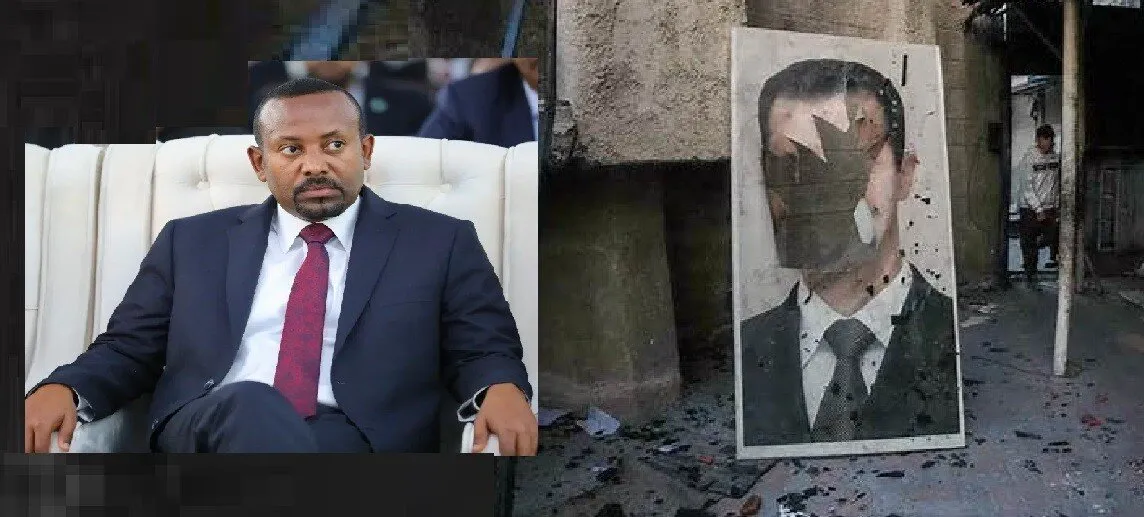BY TAGEL GETAHUN,
Ethiopians are not well informed about the true realities of their own country’s failed politics as the existing political culture subdues obnoxious truths. For example, there is no single piece of evidence that can prove the Revolutionary Democrats are essentially power-grabbing opportunists, though their forged identity has often been presented on the national political scene unfairly for the past two decades.
Their background does not in any way indicate that they are autocrats. Rather, arguably, their model of democratisation and the efforts they take to consolidate democracy make them more democratic than their contenders.
What remains amazing is the opposition side’s failure to understand that the freedom of expression it has exercised for the past two decades also belongs to people with a different political view. I wonder how authoritarian they would be if they were actually in power, given the hostile behaviour they exhibit towards political commentators who disagree with them.
Ethiopian elites’ failure to appreciate and give due attention to the involvement of foreign powers in the politics of their own nation is also a vital issue that fails to draw as much attention as it deserves. There are various factors that draw the interest of foreign powers and make the nation more vulnerable to their political interference. However, even the media, both the state-run and privately-owned, do not inform the public about this national threat.
The fundamental cause for the failure of the opposition to gain popular support at the national level is their resistance to the rights of self-government pursued byEthiopia’s various nationalities. As a result, most of the population ofEthiopiadoes not take the opposition seriously.
Due to this wrong political view, the opposition not only fails to gain national support but is also seen taking the wrong side of the political aisle. The way out of this problem, as I see it, is by putting an end to the old nationalist conception.
The opposition is still focusing exclusively on the politics in Addis Abeba. However, the city is only the political capital of the nation. It does not represent the interests of all ofEthiopia’s nationalities, and they in return do not support the opposition.
Undeniably, the current opposition does not offer a viable political choice that citizens can rely on. Opposition members seem more inclined to take to the streets in protest than to govern. A multi-cultural country deserves a functional opposition that contributes to a successful multiparty democracy. That said, a basic democracy can exist with even a single political party.
Undeniably, the Revolutionary Democrats followed the wrong approach to democracy until 2005. Neither removing the incumbent nor placing the opposition in power will deliver democracy. After all, what matters most is not the absence of multiple parties but actual democratic governance.
Yet, given the realities of the nation that are known to all of us, the opposition is demanding what is beyond the capacity of the nation, similar to the way a boy makes demands from his parents irrespective of their financial capability. Unless the opposition is full of pretentious politicians, it must take in to account the realities of the nation as the fundamental factor upon which to base their political views.
A true democracy means a system where there is participation, accountability, competition and rule of law. A system that respects civil liberties, freedom, fair and free elections, and reductions in political, economic and social inequalities.
How on earth could an impoverished nation achieve this type of governance at this time? Besides democracy, even the simple problems of governance still need a lot of attention. To this end,Ethiopia’s political journey has to go through two landmark stages: good governance and democratic governance.
At any rate, the interests of Ethiopians living in severe poverty must be given priority. Fortunately, the Revolutionary Democrats have proven to be leftists, so their pragmatic culture dictates them to make demands for the disadvantaged part of society representing the majority of the population.
Currently, the combined effects of the nation’s transition to democracy and adoption of capitalism have created a scenario where the emerging nouveau riche whose wealth is undeserved are being tempted to intervene in politics to extend their power into the political sphere. And they are doing this by using every opportunity that avails itself.
Following the adoption of capitalism after 1991, the business sphere was widened. As a result, those who jumped into business and money making found it easy to achieve their goals utilising every available means.
Whilst all this was taking place, the nation failed to give due attention to the growing business culture that is dominated by self-centeredness and brutish behaviors. Consequently, a business environment that is dominated by profit maximisation and cares little for the general public interest was created, and public institutions were weakened. Their fortunes gave them an upper hand that enabled them to dominate life irrespective of their merits.
Regrettably, this harmful culture is not limited to the spheres where it originated. As more people become wealthy, their power rises. Their money-crazy culture propagates and poisons other sectors of life such as politics.
It is high time to take every necessary measure to protect democracy, above any outside interest, from the negative outcomes of the business people who possess excessive resources being utilised for this purpose.
I still prefer not to indict the incumbent for the absence of a fully-realised democratic system. At least, the Ethiopian elite must ask themselves if they helped democracy in this country.
Given these complications that impede the political culture from healthy functioning, the relevant issue that needs to be raised at this point is: would it not be naïve and unpractical to govern this nation with a generic governance style or should governance be shaped to suit the facts of this political system?
It shows how objectivity is closely connected to a pragmatic conception of democracy. Let aloneEthiopia, even the highly advanced nations in the world are governed with this fashion.
The project of harmonising ideals and practical realities often falls on the shoulders of public agencies. Because this task involves the application of universal concepts to unique practicalities, those in public administration need strategies to deal with unusual or problematic cases.
Pragmatism seems to offer such a strategy. This is why the current pragmatist rulers ofEthiopiaoften find themselves under fire for being relativist.
Even our life experience is methodologically inseparable from pragmatism. The experimental nature of pragmatism is what best explains its enduring popularity.
Regardless of their political affiliation, officials are supposed to be generally more pragmatic than the people they administer. They have to deal with real problems in their communities, whether it is schools, transportation, unemployment or natural disasters. When the real world intrudes, there is less time for ideological debates as the problems demand a quick response whose delay may lead them to an even worse situation.
It has never been easy for the different factions inEthiopiato agree on major issues. It seems to be getting even harder now and is likely to stay that way well into the future. So, for pragmatic, not ideological reasons, we should force politicians to modify their policies to best fit the needs and desires of citizens. Policies must be issued after a thorough investigation of the nation’s empirical reality to the extent to which they enable people to attain their aims. There is also a need to make sure that continuity exists within the policy sphere, regardless of changes in power.
That is why I see the Ethiopian opposition failing. It seriously fails at getting itself in sync with reality and at pragmatism.
It needs to adopt cooperative politics. Given the rising popular support for the EPRDF and the opposition’s dwindling popular support, they will not have a promising future unless they become pragmatic enough.
One day the fractional and hostile politics and opportunism will be gone. Until that day, democratic consolidation inEthiopiawill continue to be dominated by a single party. No expansion of the political space could improve the situation unless a fundamental change in behaviour is adopted by the opposition.
Tagel Getahun He Is an Advocate in Law.















